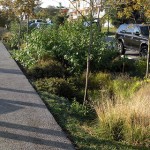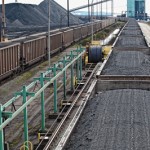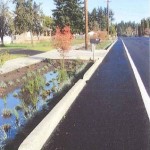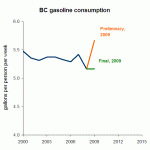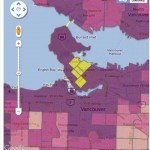Search Results
-
Chinese Guestworkers Head Into BC Coal Mines
This is surely one of the stranger dimensions of the coal export saga we've been cataloging: the Canadian government is approving guest-worker status for as many as 2,000 Chinese nationals to extract coal from British Columbia's underground mines. As the Vancouver Sun reports:
Canadians “just don’t have the experience” operating the equipment needed to safely extract coal in underground mines, said John Cavanagh, chief executive of Vancouver-based Canadian Dehua International Mines Group Inc., a company founded by China-born Vancouver businessman Naishun Liu.
Understandably, Canada's unions are not exactly thrilled with the idea:This is surely one of the stranger dimensions of the coal export saga we’ve been cataloging: the Canadian government is approving guest-worker status for as many as 2,000 Chinese nationals to extract coal from British Columbia’s underground mines. As the Vancouver Sun reports: Canadians “just don’t have the experience” operating the equipment needed to safely extract coal in underground mines, said John Cavanagh, chief executive of Vancouver-based Canadian Dehua International...Read more » -
Promise of Permeable Pavement
Editor’s note: This post is also available as a pdf. Permeable pavement is one of the most promising green solutions that can help reduce and clean up polluted stormwater runoff. Like conventional pavement, it can be made of asphalt or concrete that’s either poured in place or sold as pavers, and it can be used in a variety of settings, including on parking lots, low-traffic roadways, driveways, and sidewalks. Permeable...Read more » -
Does “BC” Mean “Bans Clotheslines”?
British Columbia prides itself on a commitment to renewable energy. Yet many British Columbians are forbidden from stringing up the simplest of solar devices: the clothesline. These laundry-drying bans are written into the bylaws of strata corporations, which govern most of British Columbia’s condominiums, apartments, duplexes, and townhomes. Condos are a big and fast-growing housing choice in the province. In just 20 years, the percentage of Vancouverites dwelling in them...Read more » -
Coal’s Spontaneous Combustion Problem
Those who are evaluating export proposals might do well to examine one little-talked-about peculiarity of Powder River Basin (PRB) coal: it has an unfortunate tendency to spontaneously combust, even in rail cars and stockpiles. To be clear, it’s not as if coal trains will be delivering blazing cargoes. The threat is likely to be more insidious—slowly smoldering coal that is perhaps emitting noxious gases into neighboring communities. Yet the severity...Read more » -
Surprisingly Ambitious Permeable Projects
Municipal engineers don’t exactly have reputations for being devil-may-care, live-on-the-edge risk takers. Speaking generally, they work hard, take their jobs seriously, and really really want their projects to work. Collapsed bridges and over-flowing sewers don’t look so hot on the resume. But stormwater engineers in Gresham, a neighbor to Portland, and Issaquah, located in the foothills of the Cascades outside Seattle, have built some interesting — even a touch experimental...Read more » -
Making Sustainability Legal: 2011 Progress Report
Six months ago, we launched the Making Sustainability Legal project arguing that, although the Northwest could benefit from a top-to-bottom remodel of its public-policy house, deep political divides and starvation budgets make big reforms unlikely soon. In the meantime, maybe we can clean out the fridge? Making Sustainability Legal is about pulling moldy regulations out of the back of our law books and composting them. Dozens of regulations, whatever virtue...Read more » -
Australia Puts a Price On Carbon
I can’t let this pass without comment: Australian lawmakers just laid down a new marker in responsible climate policy. Starting next year, Australia will levy a carbon tax of about $23 per ton for the country’s largest polluters. By 2015, the carbon tax will transform into a market-based emissions trading program. As the Guardian points out: The laws will see Australia join the European Union and New Zealand with national...Read more » -
Tackling the Other Carbon Problem
In this blog series, we’ve explained how carbon dioxide pollution is making the oceans more acidic, demonstrated that it’s happening now, looked at which marine creatures are most at risk and talked to oyster growers, commercial fishermen, and Native American teenagers about their prospects if the ocean systems that support their businesses and culture collapse. So what can we do about ocean acidification? Here are some of the key solutions:...Read more » -
A Gasoline Goof for BC
Hoo boy. Last year, we reported that per capita gasoline consumption in British Columbia spiked unexpectedly in 2009, notching a 9 percent per capita gain. The numbers struck us as odd, but not inconceivable—especially given the steep drop in fuel prices in 2009, coupled with the fact that the province was gearing up for the 2010 winter Olympics. So we checked with the provincial agency that gave us the numbers;...Read more » -
BC Data Maps
Sightline boardmember and Vancouver urbanite Gordon Price pointed out some great data visualizations coming out of BC on his blog. There’s a whole series of maps looking at how Vancouver residents get to work. For instance, 40 percent of West End residents walk to work:Read more »

